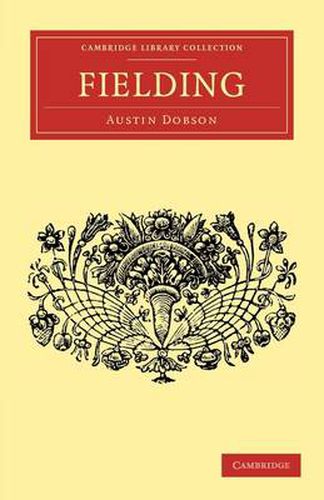Readings Newsletter
Become a Readings Member to make your shopping experience even easier.
Sign in or sign up for free!
You’re not far away from qualifying for FREE standard shipping within Australia
You’ve qualified for FREE standard shipping within Australia
The cart is loading…






At the outset of this book, published in the first ‘English Men of Letters’ series in 1883, the poet and author Austin Dobson (1840-1921) declares his intention to restrict himself to giving a ‘purely biographical’ account of the life of the lawyer, novelist and dramatist Henry Fielding (1707-54). Fielding is probably best remembered today for his novels Joseph Andrews and The History of Tom Jones (1749), but in his own day he was famous not only for his writings in many different genres but also for his work as an innovatory Justice of the Peace in London. Dobson recounts Fielding’s life from his schooldays at Eton to the production of his first play, and his subsequent careers as a writer, magistrate and controversialist, until his death in Portugal (where he had travelled in the hope that the climate would improve his health) in October 1754.
$9.00 standard shipping within Australia
FREE standard shipping within Australia for orders over $100.00
Express & International shipping calculated at checkout
At the outset of this book, published in the first ‘English Men of Letters’ series in 1883, the poet and author Austin Dobson (1840-1921) declares his intention to restrict himself to giving a ‘purely biographical’ account of the life of the lawyer, novelist and dramatist Henry Fielding (1707-54). Fielding is probably best remembered today for his novels Joseph Andrews and The History of Tom Jones (1749), but in his own day he was famous not only for his writings in many different genres but also for his work as an innovatory Justice of the Peace in London. Dobson recounts Fielding’s life from his schooldays at Eton to the production of his first play, and his subsequent careers as a writer, magistrate and controversialist, until his death in Portugal (where he had travelled in the hope that the climate would improve his health) in October 1754.